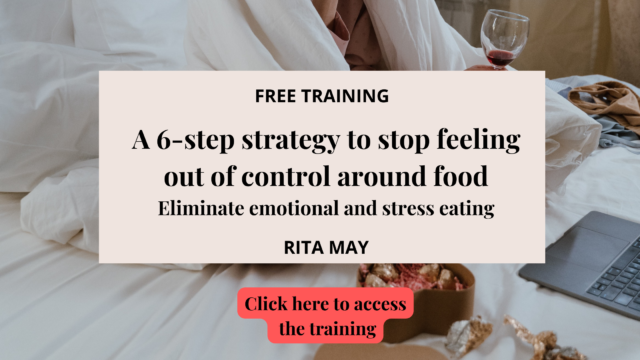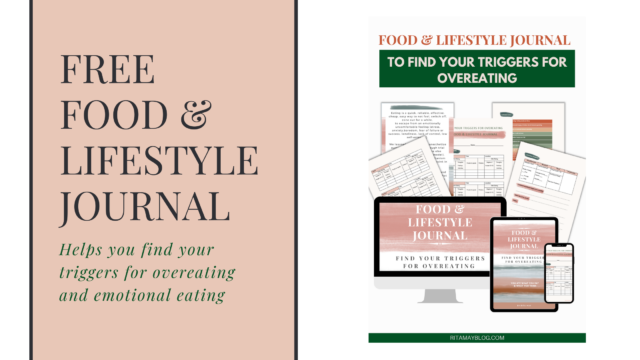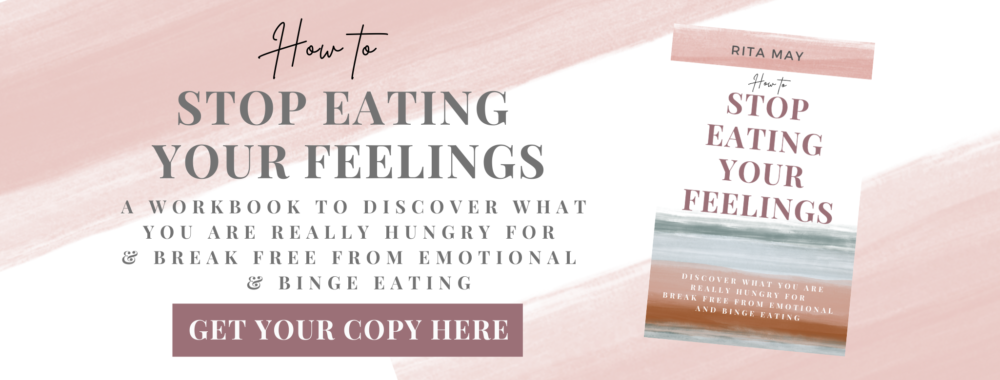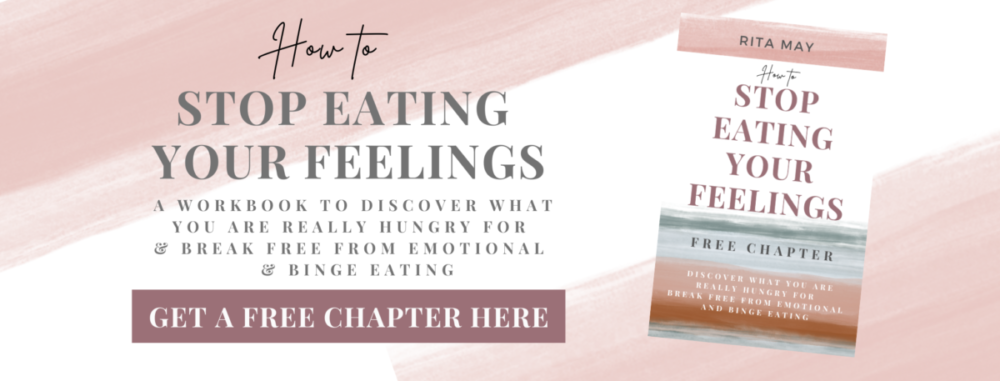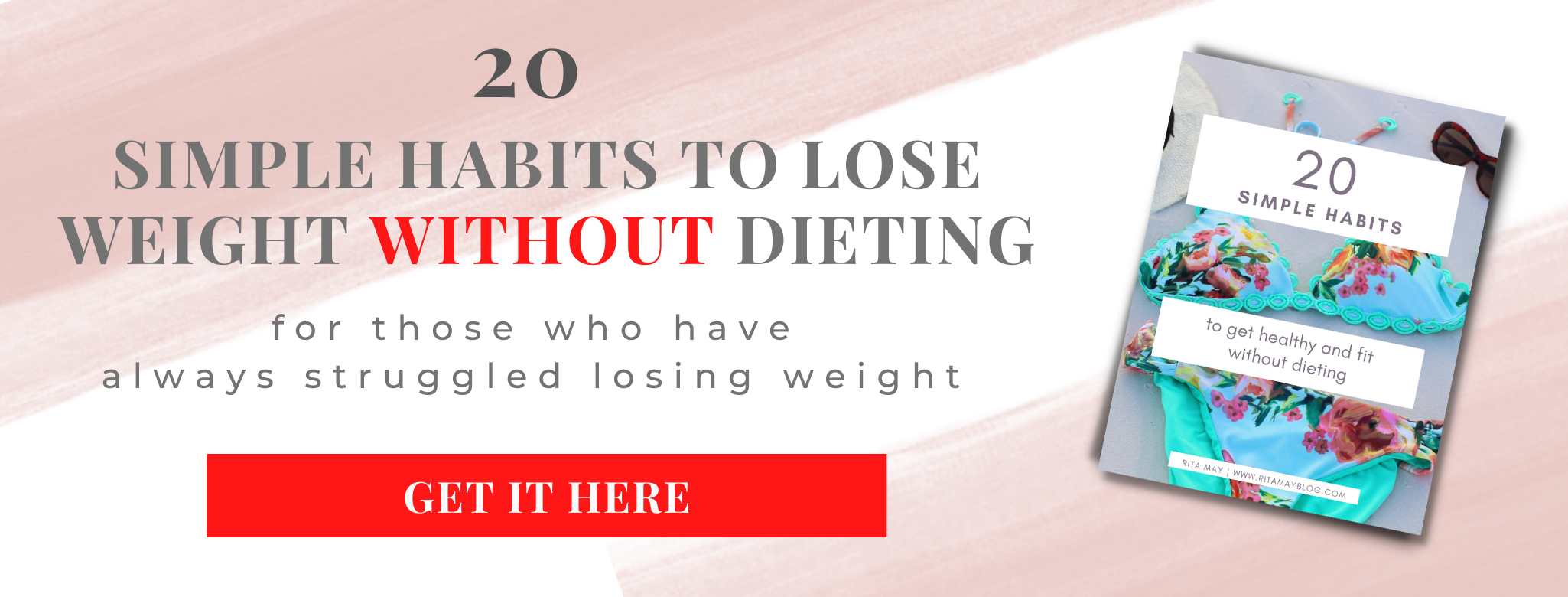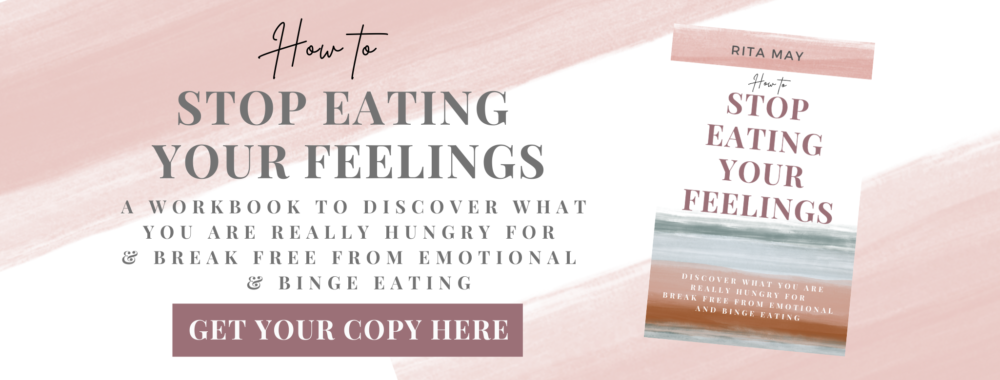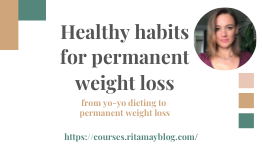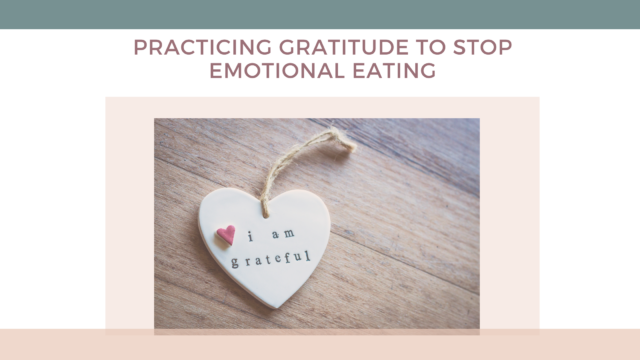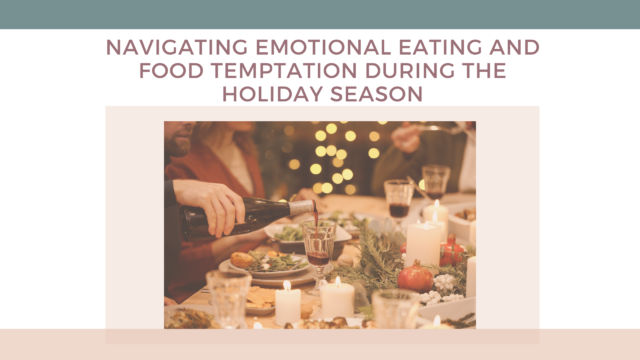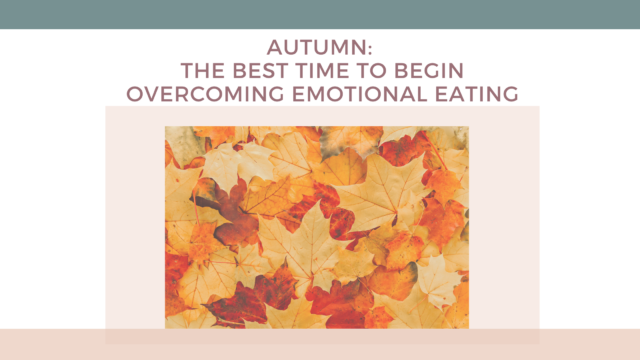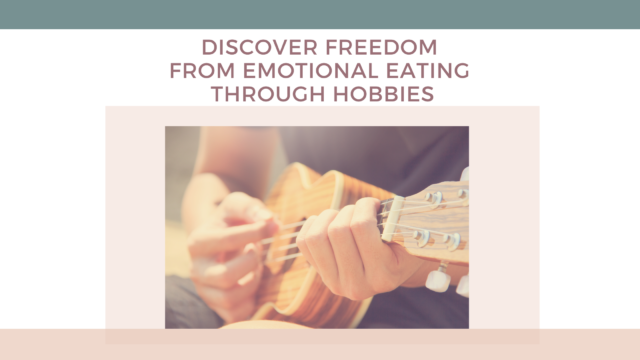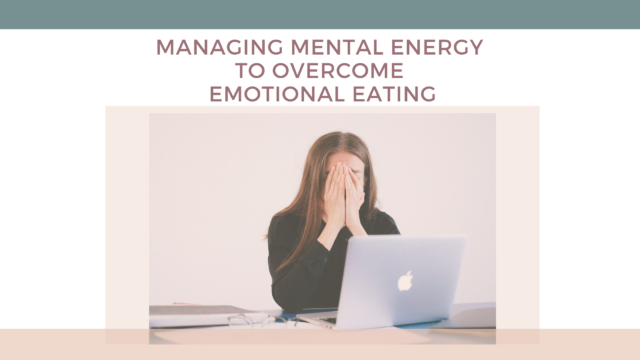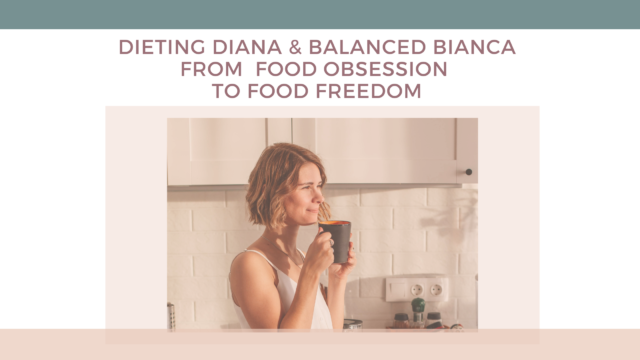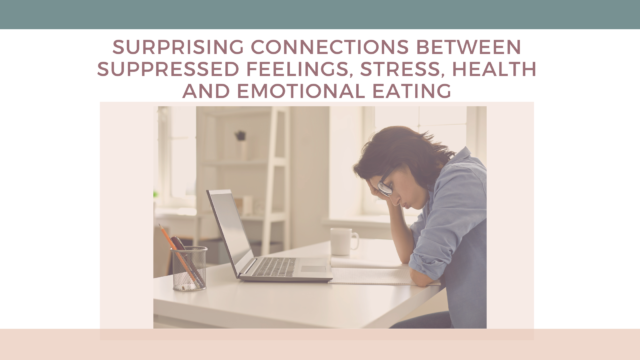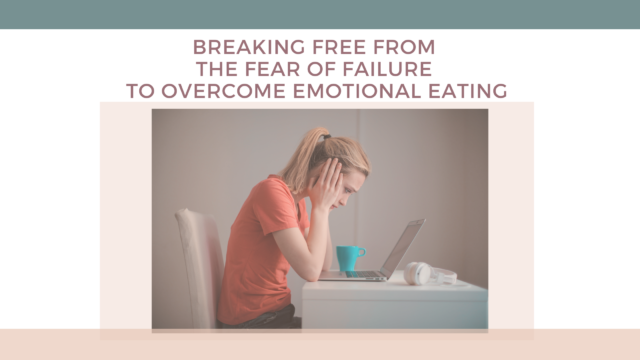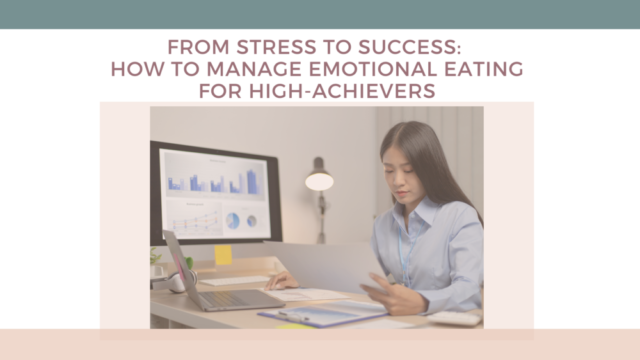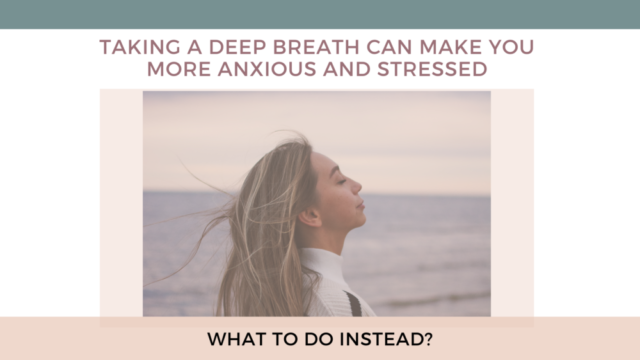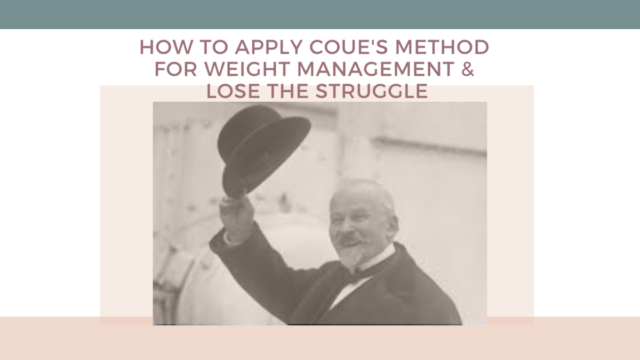This article will be sharing a few ways to know the difference between physical and emotional hunger.
The difference between physical and emotional hunger
Do you find yourself standing in front of the fridge or cupboard and looking for something to eat? As we stay at home more and have more time to cook and eat, unnecessary snacking and overeating are almost inevitable. In this post, I listed some possible reasons why we might feel like snacking more than usual.
Don’t beat yourself up if it happens to you, it’s completely normal. 🙂
However, if you want to reduce the occurrence, you might want to pay attention to your hunger. In my previous post, I said that we should ask ourselves whether we are physically or emotionally hungry before we start eating.
The problem is that we might not be able to distinguish between physical hunger and emotional (boredom, anxiety, stress, habitual, etc.) hunger or eating for pleasure. This can be really difficult if you use food regularly to distract yourself from or to suppress your feelings.
Looking into how you feel about eating is the first step in the direction of tackling these issues.
When you reach for something to eat, you want to know the real reason why you’re standing there in front of the refrigerator.
I listed some signs that can help you distinguish between emotional and physical hunger.
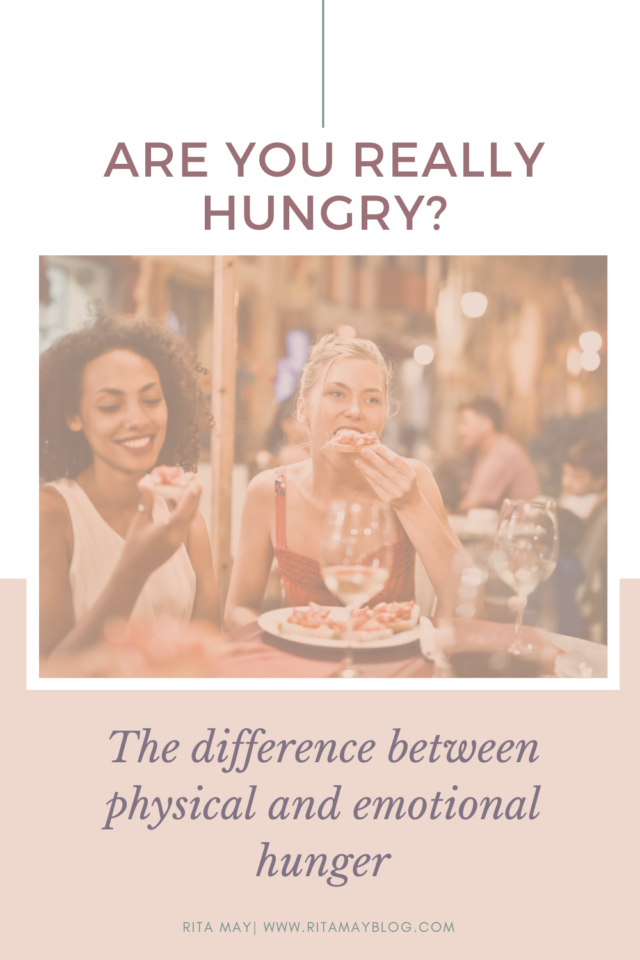
Physical hunger
The thing about hunger is that it rarely subsides until you have eaten something. Real hunger is a sign that your body needs nutrients and new components to build and replace old or dying cells.
Physical hunger does not strike suddenly, it becomes stronger gradually and when it´s not strong it can wait.
The most noticeable sign that you’re experiencing real hunger is growling in your stomach and hunger pangs. You’ll feel an ache or discomfort in your empty stomach and understand that eating something is the only way to relieve the pain.
The low blood sugar that comes with real hunger produces other uncomfortable side effects that’ll last until you nourish your body. When you are very hungry you may begin to develop a nagging headache, feel light-headed or as if you’ll pass out, become easily angered or frustrated (irritability), and feel generally fatigued.
When you experience physical hunger any food sounds good, including healthy options.
The clear-cut sign that this is real hunger is if these symptoms go away after eating a meal. This feeling will return within a few hours when your digestive system empties the stomach, and your body needs nourishment once more.
When you have a healthy relationship with food, you will eat until you are full, but not until you are so full that you feel sick or out of balance.
Finishing eating will more than likely also lead to a feeling of satisfaction instead of feelings of shame.
Emotional hunger (or eating for pleasure)
There are certain patterns and indications that you are becoming emotionally hungry.
Have you ever been hungry very suddenly only a short time after eating?
Physical hunger takes time to develop because it stems from the fact that your body will need nourishment from time to time.
Emotional hunger ignores this process and instead will make you crave foods even after eating a full meal. These cravings often take the form of some sort of comfort food, likely a fast food item or a very specific brand of the item.
It’s a craving that you can’t get out of your head.
The craving doesn’t stop when your stomach is full. You don’t eat that slice of cake or an extra serving of macaroni because you don’t feel full — you continue eating because you simply want to eat.
The most telling sign of emotional eating however is the deep feeling of shame that some express after eating. Food is an enjoyable activity, but if you feel guilty about eating it, that means that there is a deep psychological reason attached to your choices.
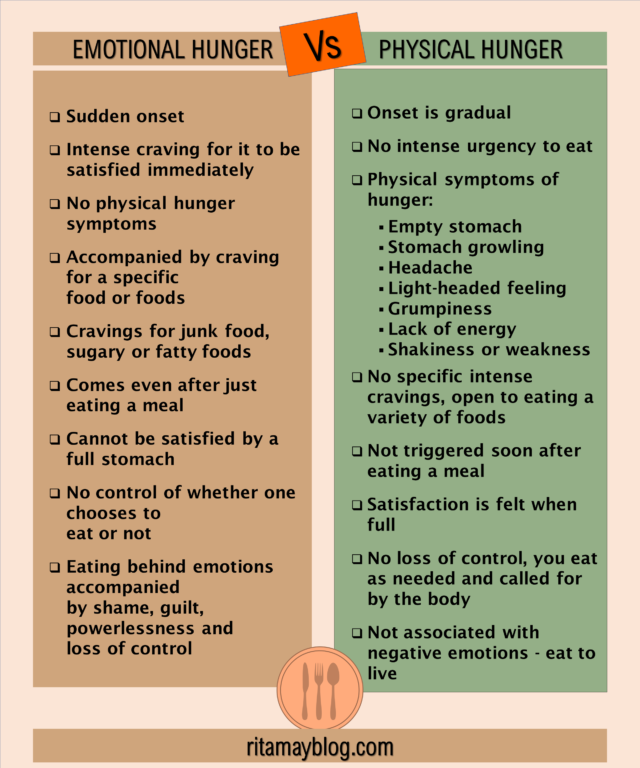
In doubt?
Answers the following questions to find out if you’re an emotional eater:
- Do you eat because you’re hungry? Or do you eat because it makes you happy?
- When you feel stressed or emotional, do you turn to food as a coping mechanism?
- Do you crave foods with certain textures and flavors?
- Will you continue to eat, even when you feel full?
- Do you feel a sense of emotional relief and comfort after eating?
Many people eat to cope with their uncomfortable emotions and to feel better about themselves. This improved mood from eating your favorite foods, even when you’re not hungry, is due to endorphins that the body releases after eating.
These endorphins give you a “natural high”. This teaches your brain that eating makes you feel better emotionally. The more often you eat to feel better, the stronger this habit becomes. As a result, you develop a dependence on food and you turn to food as a source of happiness and fulfillment.
This is the reason why so many of us will eat to cope with breakups, divorce, a new baby, a death in the family, a stressful job, financial difficulty, and other difficult and uncomfortable feelings.
The easiest way to find out what’s going on with you and your stomach is to simply write down what you eat and how you feel for a few days. This can help you find out when and why you eat so that you can make better decisions next time.
You can download my free Food and Lifestyle Journal from here. In this journal, you can write down not only your food but your feelings, activities, and emotions before and after eating, as well as the degree of hunger you feel.
How can I help you?
When you completed your journal feel free to send it to me for a Food & Lifestyle Journal Audit. A few days after receiving your completed journal, I’ll send you my observations and recommendations in an email.
When you know your triggers for overeating and your reasons for emotional eating you will be able to find solutions to overcome these habits.
If you need help finding your triggers and developing a strategy to overcome your emotional eating habits book a 90-minute 1 : 1 Intensive Session. You will also receive a workbook for free that will help you stop overeating and emotional eating.
You can also purchase the workbook separately and do the work independently in your own time. Of course, you can send me an email if you have questions. The workbook helps you discover what you are really hungry for and you can finally break free from habitual overeating, emotional, stress, and binge eating. Check it out HERE.
This free training will show you the exact steps to stop feeling out of control around food and eliminate emotional eating, stress eating, and binge eating.
Final Thoughts
As humans, we need to eat to get the right nutrients for energy and life.
It’s common for people to eat when they have a food craving or desire to cope with emotional stress rather than feeling the physical effects of real hunger first.
Eating purely for pleasure is okay in moderation, but it does pose health risks if you overeat in the long-term. There’s a risk of weight gain and a dependence on food rather than other coping strategies.


